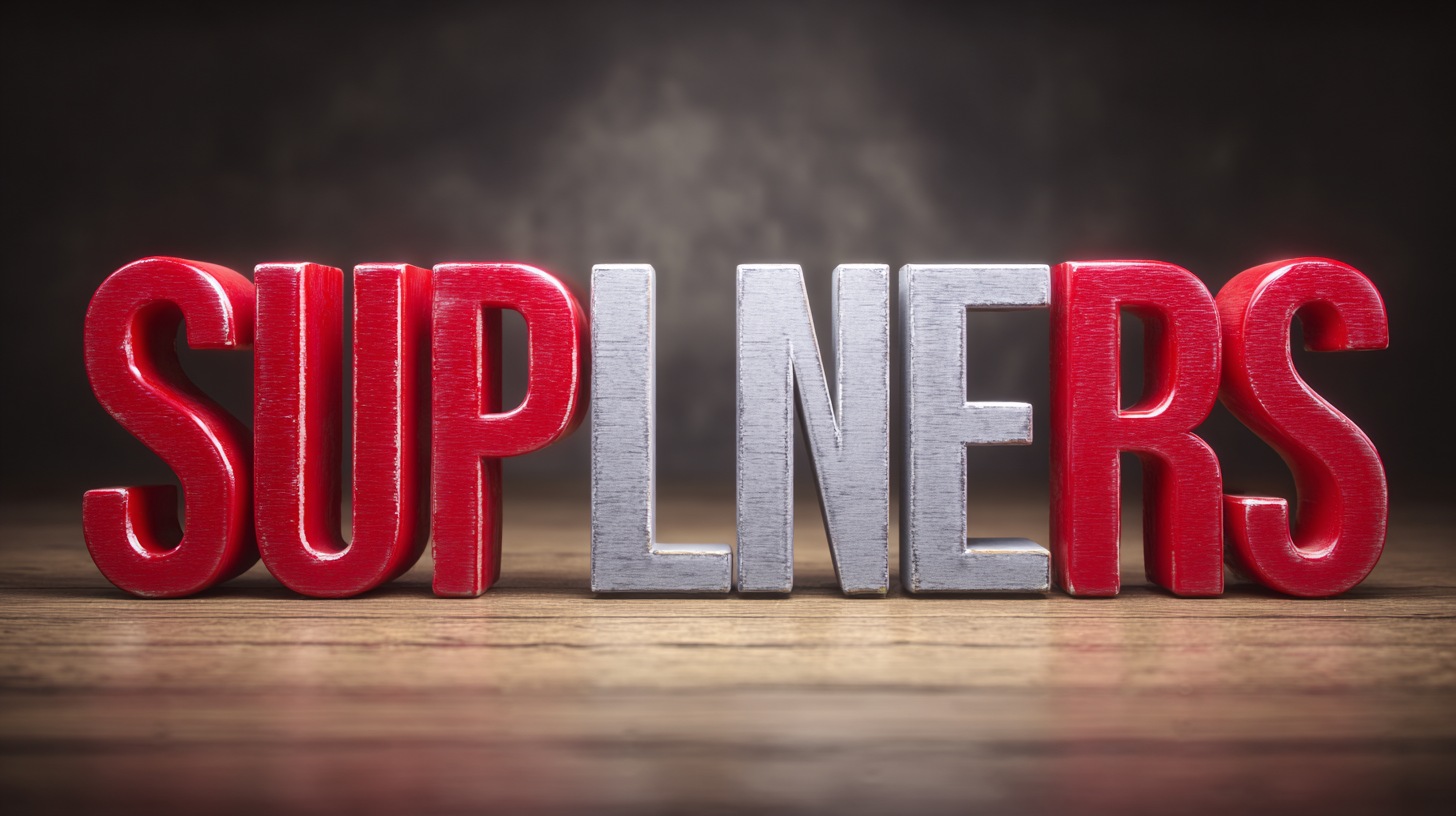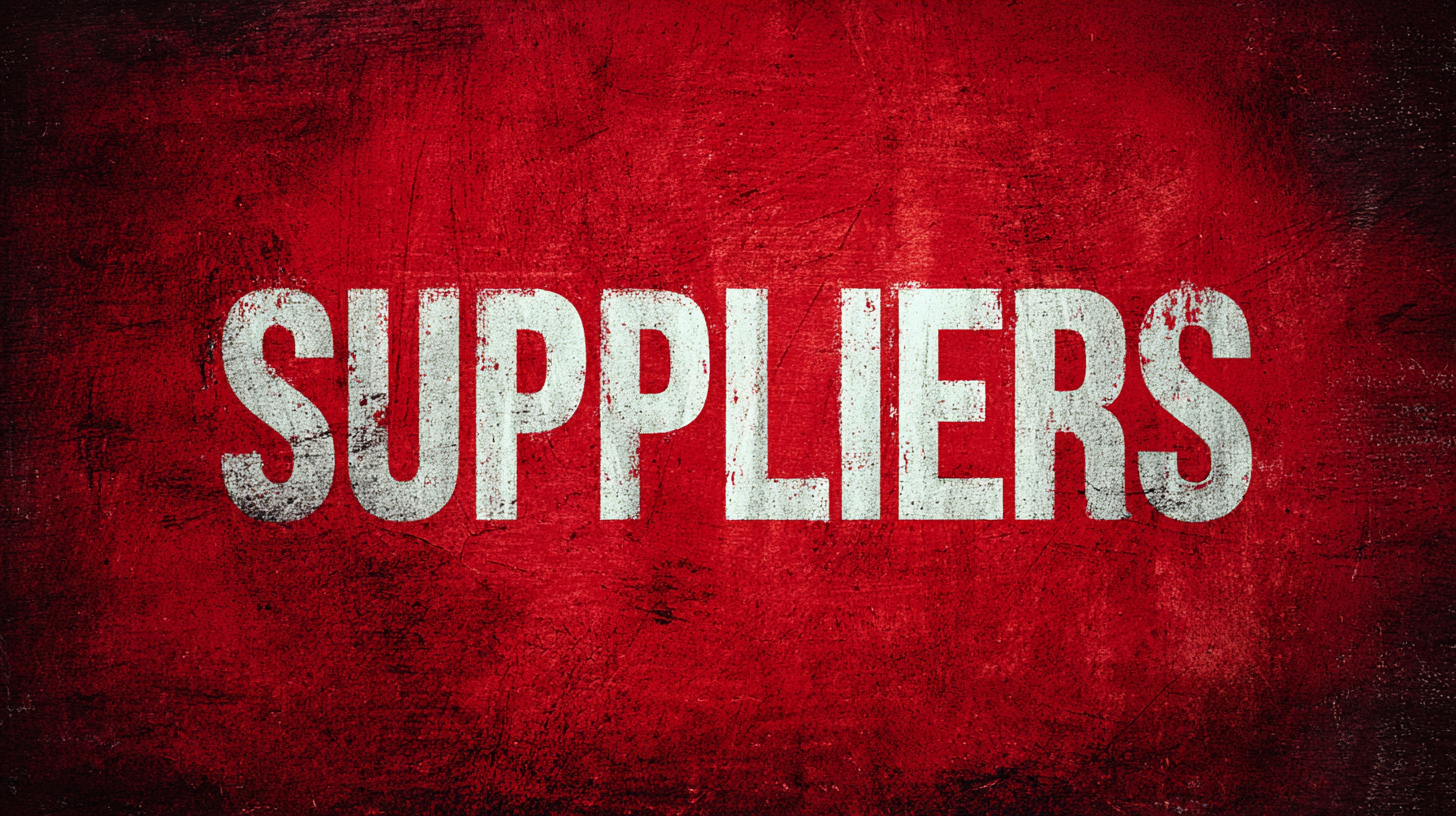
In today's dynamic business environment, selecting the right suppliers is crucial for maintaining a competitive edge and ensuring operational efficiency. According to a report by Statista, businesses that strategically manage their supplier relationships can achieve up to a 20% reduction in costs and enhance their overall performance by 15%. As supply chain complexities increase, organizations must overcome various challenges in supplier identification, such as quality assurance, reliability, and cost-effectiveness. In fact, the Deloitte Supply Chain Report indicated that 79% of organizations that excel in supply chain management outperform their competitors in profitability. This underscores the importance of not only finding but also evaluating suppliers to align with business objectives. Therefore, identifying the best suppliers becomes essential for fostering innovation, enhancing product offerings, and ultimately driving business growth.

Reliable suppliers play a crucial role in the success of any business, providing not only the necessary materials and products but also ensuring consistent quality and timely delivery. When businesses partner with dependable suppliers, they establish a foundation that supports streamlined operations and enhances customer satisfaction. Any disruption in the supply chain can lead to production delays, increased costs, and ultimately, dissatisfied customers. Therefore, understanding how to identify and cultivate relationships with reliable suppliers is essential for maintaining a competitive edge.

Moreover, reliable suppliers often contribute beyond mere transactions; they can offer insights and innovations that help businesses improve their products or services. A strong relationship with a supplier can lead to better pricing, access to new technologies, and improved responsiveness to market changes. By investing time in evaluating potential suppliers, prioritizing those with a proven track record, and fostering open communication, businesses can ensure they are aligned with partners who are committed to mutual success. This strategic approach not only mitigates risks but also positions a business for sustainable growth in an ever-evolving marketplace.
Identifying the best suppliers for your business involves a thorough evaluation process that encompasses various key criteria. One vital aspect is assessing suppliers' compliance with relevant standards and regulations, especially in light of changing directives such as NIS2, which emphasizes cybersecurity preparedness. Organizations should consider suppliers' ability to safeguard information and their compliance history. According to a recent report, 73% of companies have faced cybersecurity incidents due to third-party suppliers, underscoring the importance of robust supplier selection strategies.
When evaluating suppliers, it's beneficial to incorporate environmental, social, and governance (ESG) metrics into your criteria. Companies that proactively manage ESG risks are more likely to maintain stable relationships with suppliers and achieve long-term sustainability. A survey showed that 89% of executives believe ESG performance can enhance financial performance, demonstrating that suppliers who prioritize these areas can add significant value.
To strengthen your selection process, considering an integrated framework like the Analytical Hierarchy Process (AHP) can systematically assess suppliers based on multiple criteria. This method enables decision-makers to prioritize essential characteristics while considering trade-offs effectively. Implementing a structured approach not only enhances supplier evaluation but also aligns procurement strategies with organizational goals.
When it comes to identifying the best suppliers for your business, conducting thorough supplier research is essential. Start by defining your selection criteria based on your specific needs, such as quality standards, pricing, reliability, and delivery times. Create a list of potential suppliers and gather as much information as possible about them. Utilize online resources, industry reports, and supplier reviews to gain insights into their reputation and performance. Engaging directly with potential suppliers through initial communications can also help assess their responsiveness and willingness to meet your requirements.
Additionally, consider visiting suppliers’ facilities if feasible. This firsthand experience allows you to evaluate their operations and quality control processes in real-time. Networking within your industry can provide valuable referrals and recommendations, helping you to narrow your list to those suppliers who truly align with your business goals. Remember to request samples where applicable, as they can offer tangible evidence of the quality you can expect. By following these strategies, you can make well-informed decisions that will set a strong foundation for successful partnerships with your suppliers.
Building a strong relationship with your chosen suppliers is essential for the long-term success of your business. The foundation of this relationship lies in open communication and mutual respect. When you engage in transparent dialogues about expectations, timelines, and concerns, both parties can build trust—an invaluable component in any partnership. Regularly scheduled meetings to discuss performance, feedback, and changes in market conditions can further foster this rapport, making it easier to address potential issues before they escalate.
Moreover, understanding your suppliers' needs and challenges can enhance your partnership significantly. By showing appreciation for their efforts and acknowledging their contributions, you create a collaborative environment. This can include sharing insights about market trends or offering support when they face difficulties. By working together toward common goals, you not only strengthen the relationship but also create a more resilient supply chain. In essence, investing time and effort into these partnerships will yield dividends in reliability and quality, allowing your business to thrive even in challenging times.
In today's fast-paced business environment, leveraging technology for supplier management and communication has become essential for success. A recent report by McKinsey highlights that businesses utilizing advanced supplier management tools can reduce procurement costs by up to 20%. This is primarily due to the ability to streamline communication and enhance collaboration with suppliers, leading to more effective negotiations and timely delivery of goods.

Moreover, technologies such as cloud-based platforms and AI-driven analytics enable companies to gain deeper insights into supplier performance. According to a Deloitte survey, 50% of organizations have reported improved supplier relationships through the use of digital tools. These platforms facilitate real-time communication and data sharing, making it easier to address issues swiftly and keep projects on track. By adopting these innovative solutions, businesses not only improve their operational efficiency but also build more resilient supply chains capable of withstanding market fluctuations.
